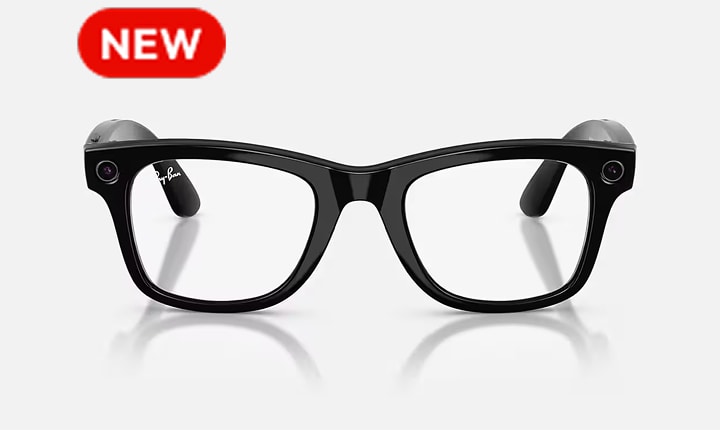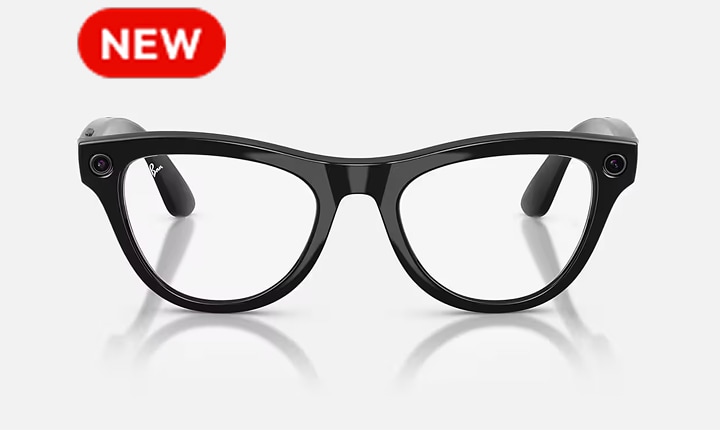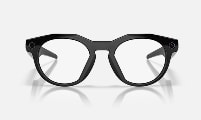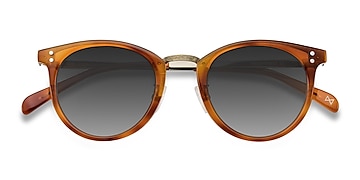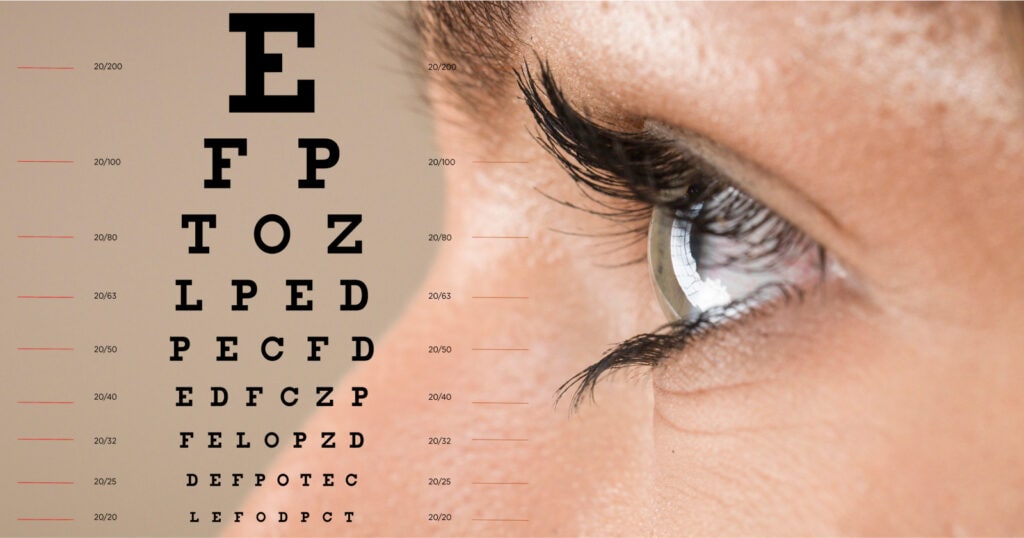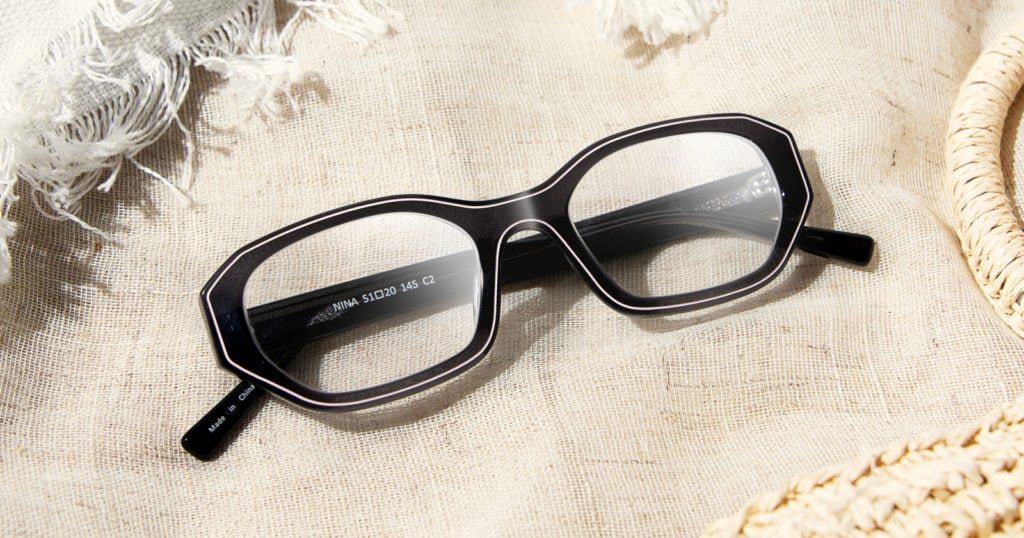Sunglasses do more than add style—they block harmful UV rays and reduce glare. Choosing the right type of sunglasses depends on your activities and light conditions. Polarized lenses filter reflected light for sharper vision, while non-polarized lenses reduce overall brightness.
Keep reading to find out more about the difference between polarized and non-polarized lenses.
What Are Polarized Sunglasses?
Polarized sunglasses are specifically designed to reduce glare, which is bright, harsh light reflected off surfaces such as water, roads, or snow. This glare can be both uncomfortable and unsafe. Polarized lenses filter out horizontal light, allowing only vertical light to pass through, which diminishes glare and enhances clarity in bright conditions.
These sunglasses provide more than just glare reduction. They enhance color and contrast, delivering vivid and detailed views. This makes them perfect for outdoor activities. By sharpening vision, polarized sunglasses also lessen eye strain. This can ensure comfort during prolonged use.
Polarized lenses operate in a straightforward yet intriguing manner. Imagine a Venetian blind that permits light from only one direction. These lenses include a special film that blocks horizontal light waves, the main cause of glare. This allows only vertical light waves to reach your eyes, providing a clearer and more comfortable view.
Think of polarized lenses as a filter. They block unwanted light, much like a sieve that separates solids from liquids. This not only reduces glare but also refines the image you see.

What Are Non-Polarized Sunglasses?
Non-polarized sunglasses provide protection against harmful UV rays. Unlike polarized lenses, they don’t block horizontal light waves. This makes them less effective at reducing glare. Nevertheless, they still offer significant protection, making them suitable for everyday use in conditions where glare isn’t a major concern.
Non-polarized sunglasses are helpful in some situations. They’re a great choice when you need to see digital screens clearly. This is especially true in a car when checking the dashboard or using your phone. Additionally, if you participate in outdoor activities like hiking or running, these sunglasses enable you to see natural colors without distortion.
Whether you’re going to the beach or out for errands, they offer great protection and comfort.
Key Differences Between Polarized and Non-Polarized Sunglasses
There are a few key distinctions between polarized and non-polarized sunglasses options to keep in mind.
Visual Clarity and Glare Reduction
Polarized sunglasses
Polarized sunglasses offer superior visual clarity by reducing glare from surfaces like water, snow, and glass. They are ideal for activities such as fishing, skiing, and driving, where glare can be distracting or hazardous. Users often commend how polarized lenses simplify seeing and enhance comfort in bright conditions. Experts affirm that polarization reduces eye strain and improves the overall visual experience.
Non-polarized sunglasses
Non-polarized sunglasses protect against sunlight but lack the potent glare reduction of polarized lenses. They are suitable for everyday use. However, they might not provide the clarity needed when glare is a concern, unless they have a special anti-reflective coating.
Price and Availability
Polarized sunglasses
Typically, polarized sunglasses are more expensive due to the special filter that blocks horizontal light waves. While they cost more, they are available at a range of prices, making them accessible for various budgets. Eyebuydirect offers affordable, quality polarized options.
Non-polarized sunglasses
Non-polarized lenses are generally more common and less expensive. They are available in many styles and colors. Some non-polarized sunglasses also offer features such as UV protection and trendy designs, appealing to those seeking both function and fashion.
Choosing the Right Sunglasses for Your Needs
The right pair of sunglasses does more than just look good. It should suit your daily activities and protect your eyes in the environments you spend the most time in.
Consider Your Lifestyle and Activities
Choosing the right sunglasses is about aligning them with your lifestyle and activities, not just style. Certain activities may benefit from a specific lens option or style, including:
- Driving – Polarized sunglasses are a wise choice, as they reduce glare from the road and other vehicles, enhancing safety and comfort.
- Fishing – Polarized lenses assist in seeing beneath the water’s surface, making it easier to spot fish.
- Skiing – Consider sunglasses with UV protection and anti-fog features to handle both bright sun and cold slopes.
- Hiking or cycling – Sunglasses with wraparound frames protect against wind, dust, and debris while offering a wider view.
- Traveling – If you travel often or spend time in urban settings, you might prefer stylish sunglasses that adapt to various lighting conditions. Photochromic lenses are a great option as they darken in sunlight.
- Water sports – Look for sunglasses with hydrophobic coatings to prevent water spots.
How To Tell if Sunglasses Are Polarized or Non-Polarized
Testing for polarization is key. It’s especially important when driving, fishing, or engaging in activities that require less glare. Polarized lenses cut glare by filtering horizontal light waves.
To determine if your sunglasses are polarized:
- Hold them up to a reflective surface, like a car hood, and slowly rotate them. If polarized, glare should lessen at certain angles.
- Alternatively, look at a digital screen, such as your phone. Polarized lenses will make the screen appear darker or even black out at some angles. This is particularly useful when driving, as road glare can be dangerous.
By ensuring your sunglasses are polarized, you enhance visual clarity and comfort, making outdoor activities safer and more enjoyable.
Polarized vs. Non-Polarized Sunglasses: Which Is Right for You?
Choosing polarized or non-polarized sunglasses is more than just a style choice. It’s about knowing what you need. Each lens type can improve your daily life.
Think about how you’ll use your sunglasses and what features you need. Whether it’ is glare reduction, UV protection, or style, there’s a perfect pair for you. The right sunglasses protect your eyes and boost your style. Explore our selection to find a variety of polarized and non-polarized sunglasses.







